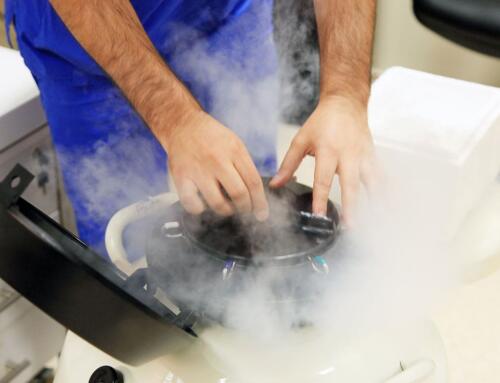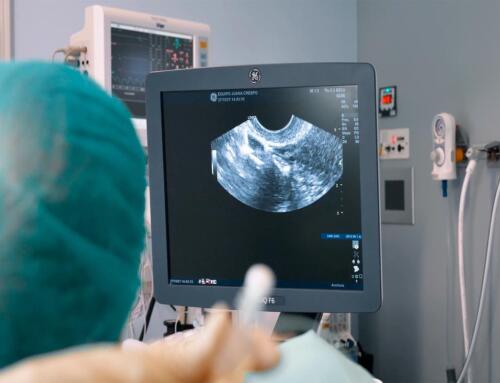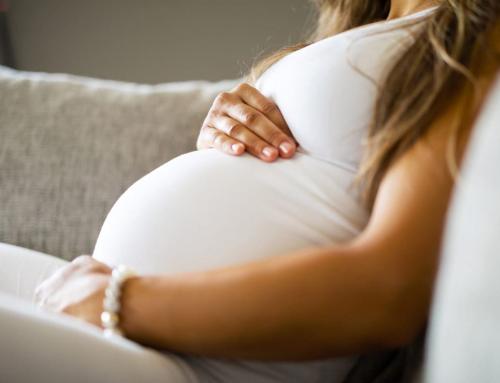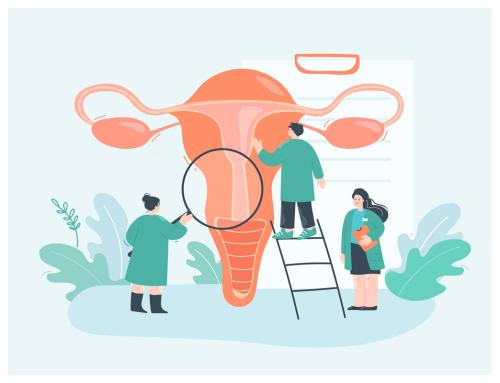.
According to the WHO, about one million new cases of sexually transmitted diseases (STDs) are reported every day worldwide.
Some of the most common, such as chlamydia and gonorrhoea, are bacterial in origin and can be easily cured with antibiotics.
However, if not properly treated, these diseases can lead to serious conditions such as bacterial vaginosis or Pelvic Inflammatory Disease (PID), a dangerous infection that increases the risk of ectopic pregnancy and can lead to female infertility.
What is Pelvic Inflammatory Disease?
Pelvic inflammatory disease is an infection of the upper female genital tract (uterus, fallopian tubes and ovaries).
It is caused when an infection, usually caused by an STI, is not properly treated and bacteria move from the vagina to other parts of the reproductive tract.
The bacteria that cause PID are usually spread through unprotected sex.
Occasionally, they can enter the reproductive tract when the normal barrier created by the cervix is disrupted. This can occur during menstruation, after labour or after an abortion.
The risk of developing PID may also be associated, in some cases, with the insertion of intrauterine devices or with medical procedures involving the insertion of instruments into the uterus.
What are the symptoms of PID?
Pelvic Inflammatory Disease is considered a “silent infection” because, in its early stages, symptoms are virtually non-existent and may go unnoticed or be mistaken for menstrual discomfort or endometriosis.
In fact, many women are not aware they have PID until they experience problems getting pregnant or develop chronic pelvic pain.
Some of the symptoms that may be associated with PID and that worsen as the infection progresses are:
- Long, painful, heavy flowing menses.
- Abnormal uterine bleeding after intercourse or between periods.
- Pain in the lower abdomen and pelvis.
- Tiredness.
- fever or chills
- foul-smelling vaginal discharge
- pain during intercourse
- pain or difficulty urinating
What problems can PID cause?
- Infertility
If PID is not treated correctly, scar tissue and abscesses can develop in the reproductive tract which can cause permanent damage to the reproductive organs (especially the fallopian tubes and ovaries) and other pelvic organs.
- Ectopic pregnancy
Pelvic Inflammatory Disease is one of the main causes of ectopic pregnancy, i.e. pregnancy that develops outside the uterine cavity (most commonly in the fallopian tubes). This is because the formation of scar tissue, both inside and outside the tubes, can cause a blockage of the tubes, preventing the fertilised egg from making its way to implant in the uterus.
Ectopic pregnancies require emergency medical attention, as they can cause massive bleeding and can be life-threatening.
- Chronic pain
PID can cause chronic pain in the pelvic organs. This pain may intensify during intercourse and ovulation.
Can Pelvic Inflammatory Disease be prevented?
Pelvic inflammatory disease is quite common, with more than one million people suffering from it each year.
One of the keys to preventing PID and other STDs is to use condoms during sex.
Medical monitoring and STD screening/testing is essential to prevent PID, as the main cause of PID is often chlamydia or gonorrhoea. The earlier the diagnosis is made, the earlier treatment will begin and the risk of PID will decrease.
Douching, on the other hand, can disrupt the balance of bacteria in the vagina and push bacteria inwards, contributing to the spread of bacteria and infections. This risk may increase in the weeks after insertion of an intrauterine device (IUD).
Women with a history of PID or sexually transmitted infections should increase their medical check-ups to prevent the onset of PID and its complications.
For diagnosis, a medical examination should be performed.
How to treat PID
Pelvic Inflammatory Disease is treated with antibiotics and does not usually require hospitalisation or surgery.
For the duration of the treatment (about 15 days), the woman should not have sexual intercourse and the removal of the IUD should be considered if its insertion was the cause of the disease. To alleviate the pain of the disease, the gynaecologist may advise taking paracetamol or ibuprofen.
Treatment should be carried out under medical supervision. If you have a partner, so should your partner. Symptoms of improvement (reduction of pelvic pain, regulation of menstrual bleeding and relief of fever) are usually noticeable a few days after starting the medication.
However, this treatment does not reverse possible damage to the reproductive system caused by long-term infections (e.g. scarring).
Every year, many women suffer from Pelvic Inflammatory Disease (PID), an infection that, if not treated in time, can have serious consequences for fertility and health. Prevention and early detection are fundamental to avoid it, hence the importance of taking precaution in our sexual relations and having regular gynaecological check-ups.
If you are interested in finding out about your fertility or receiving more information on this subject, please do not hesitate to contact us. The Juana Crespo team will be delighted to welcome you at one of our clinics to offer you the advice you need.
.
















